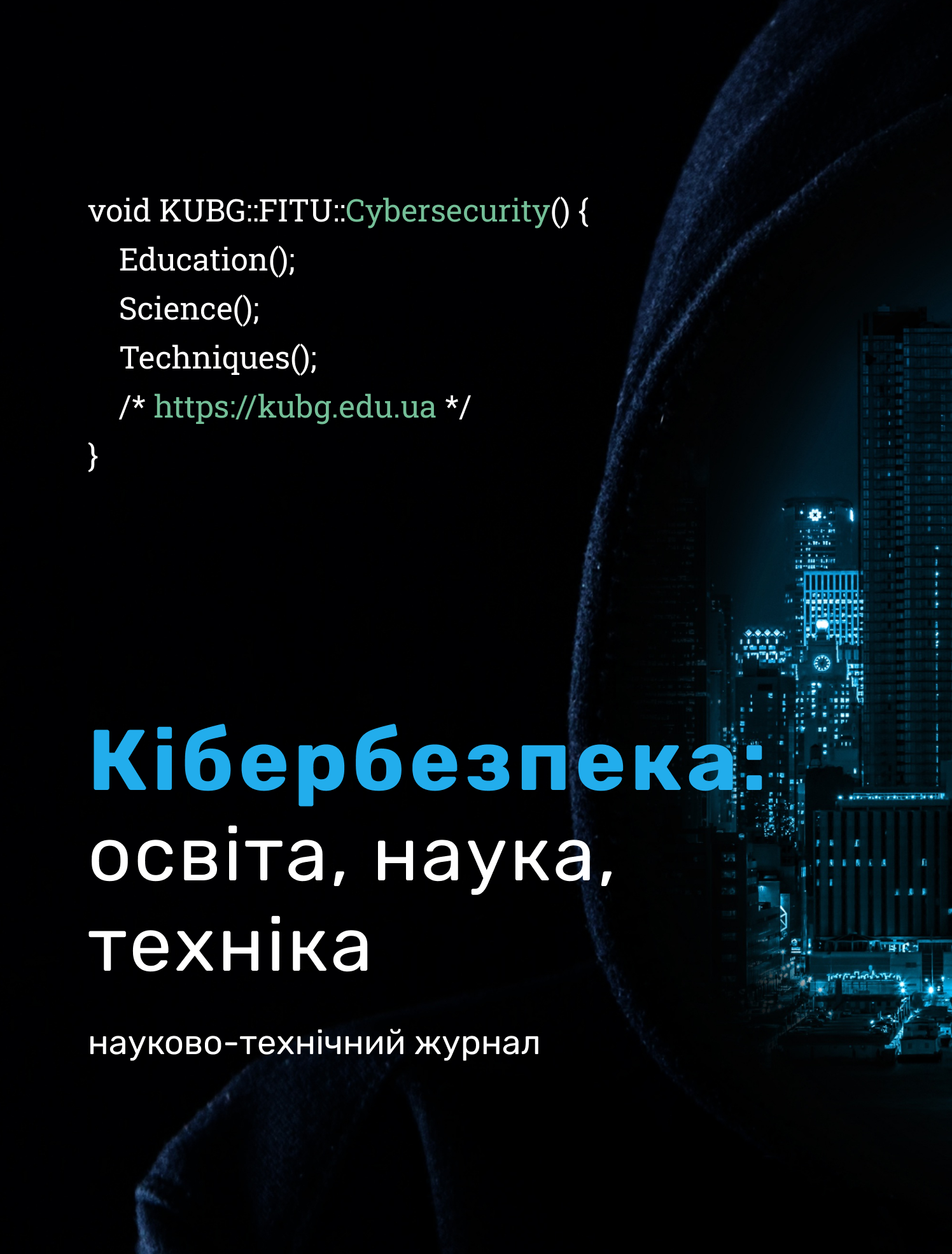ANALYSIS OF A TOOL FOR DETECTING VULNERABILITIES IN THE CLOUD TECHNOLOGIES
DOI:
https://doi.org/10.28925/2663-4023.2025.28.793Keywords:
penetration testing; cloud technologies; cybersecurity; automated tool.Abstract
This article provides a comprehensive overview of the capabilities and architecture of Scout Suite, one of the leading open-source tools for cloud infrastructure security auditing. Scout Suite is designed for automated analysis of cloud account configurations to identify potential vulnerabilities, misconfigured access controls, missing encryption, weak IAM policies, and more. One of the tool’s main advantages is its multi-cloud support, including Amazon Web Services (AWS), Microsoft Azure, Google Cloud Platform (GCP), as well as Alibaba Cloud and Oracle Cloud Infrastructure in alpha versions. The study examines the tool’s architecture, which follows a modular design and consists of a core engine, CLI request handlers, output interfaces, and dedicated components for each cloud provider. Through the use of the facade pattern, Scout Suite enables flexible support for new services while maintaining a unified logic for accessing resources. The tool generates interactive HTML reports that can be viewed offline and supports both rule customization and integration into CI/CD pipelines, such as via Jenkins. Particular attention is paid to the tool’s use in securing DevSecOps processes and achieving compliance with security standards. Scout Suite allows users to gain a full overview of their cloud infrastructure’s security posture, automate the detection of critical issues, and significantly reduce the time required for manual review. The article also outlines future research directions, including integration with SIEM systems, the application of machine learning for automated analysis of audit results, expansion to support additional cloud platforms, and the creation of specific verification profiles aligned with security standards. Scout Suite is considered a vital tool in the modern cybersecurity arsenal for organizations that actively rely on cloud services.
Downloads
References
Piskozub, A., Zhuravchak, D., & Tolkachova, A. (2023). Research on Vulnerabilities in Chatbots Using Large Language Models Ukrainian Scientific Journal of Information Security, 29(3), 111–117. https://doi.org/10.18372/2225-5036.29.18069
Borra, P. (2024). An overview of cloud computing and leading cloud service providers. SSRN Electronic Journal. https://doi.org/10.2139/ssrn.4914169
Singh, B. (2014). Identifying cloud computing vulnerabilities. International Journal of Scientific Research in Science, Engineering and Technology, 198–202. https://doi.org/10.32628/ijsrset207250
GitHub - nccgroup/ScoutSuite: Multi-Cloud Security Auditing Tool. (n. d.). GitHub. https://github.com/nccgroup/ScoutSuite
P, A., Sharma, T., Jatain, A., & Bajaj, S. B. (2024). Examining cybersecurity tools for a complete security assessment. SSRN Electronic Journal. https://doi.org/10.2139/ssrn.4850417
Jeya Suriya, B., Amarnath, B. K., Raghuraman, A. R., & Arumugam, C. (2024). Cloud security: Upgradation in CSPM configuration setting. In 2024 4th international conference on data engineering and communication systems (ICDECS). IEEE. https://doi.org/10.1109/icdecs59733.2023.10503211
Jackson, L. (2020). The CI/CD pipeline. In The complete ASP.NET core 3 API tutorial, 305–347. Apress. https://doi.org/10.1007/978-1-4842-6255-9_12
Setup. (n. d.). GitHub. https://github.com/nccgroup/ScoutSuite/wiki/Setup
Penetration testing. (n. d.). Microsoft Learn: Build skills that open doors in your career. https://docs.microsoft.com/en-us/azure/security/azure-security-pen-testing
van Merode, H. (2023). CI/CD concepts. In Continuous integration (CI) and continuous delivery (CD), 11–27. Apress. https://doi.org/10.1007/978-1-4842-9228-0_2
Architecture overview. (n. d.). GitHub. https://github.com/nccgroup/ScoutSuite/wiki/Architecture-overview
Published
How to Cite
Issue
Section
License
Copyright (c) 2025 Анастасія Толкачова

This work is licensed under a Creative Commons Attribution-NonCommercial-ShareAlike 4.0 International License.




